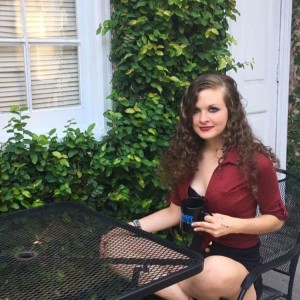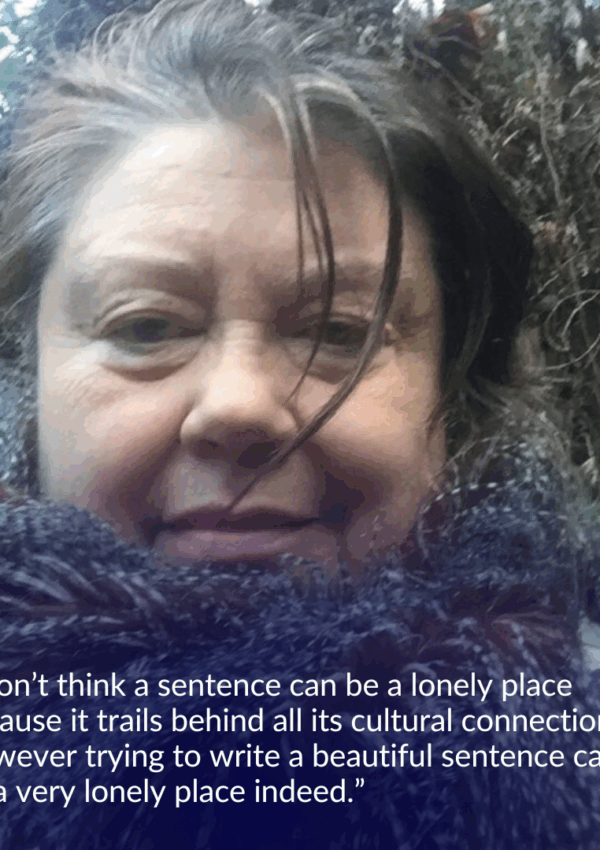Oftentimes, people picture the modern poet as an outspoken individual. This individual shares even her early scraps. I, however, differ from this image. Throughout college, I dreaded the workshop circle. While I like the concept of collaboration, I struggle to do so with more than one poet or professor at a time. I consider myself an anxious individual. On one hand, I love the natural flow of the feedback I receive. In regards to my comments, however, I prefer to mold them into a neat and crafted response. Spontaneous exercises make me cringe because I cannot construct my work in the right manner. I cannot detach myself from my innate desire to stylize and perfect. For this reason, I favor the written word over the spoken word.
Since childhood, I have struggled with the spoken word. Words never seem to communicate thoughts and, once spoken, become flat and inert. With poetry, words become my savior because they provide me with a novel aesthetic toolbox. Sound becomes a playground for self-expression, which makes me much like a song-writer. White space permits me to elucidate what does not appear on page. For an example, I wrote a poem entitled Background Noise, about my desire to organize my mind like office space. One particular line, “turn thought off to click on the alarm clock,” includes sharp sounds and monosyllabic words. Mere speech could not represent this thought. One would not hear the similar stress on each syllable and how words become indistinguishable. How I become tormented by my desire for exactness, and the battle between my comprehension of this practice as harmful, and my life lived in this perfectionistic state. Outside of a poem, one would not detect my inherent desire to place life in lines via the form of a prose poem. Poetry permits me to combat the limits of language. How anxiety places me in moving vehicle, with a desire to escape, and each time my head hits the dashboard. In a poem, I possess the art of construction and speak freely.
Currently, I am working on my first collection, entitled Staccato Thought. This contains roots in my obsession with how people construct themselves for outside view. I pulled this title from the line “I cannot organize each staccato thought,” in the aforementioned poem. As a whole, this collection involves gender roles, societal definitions of success, perfectionism, the educational system, etc. For this reason, I hope to accept my struggle with spontaneity. Once I express myself in speech, words become fixed and disingenuine. Because the written word evolves, however, it offers deeper comprehension and room for conceptual discoveries.
My organizational struggles inform my poems as well as my speech. Ironically, I consider Frank O’Hara one of my favorites because he embraces a spontaneous style I cannot accomplish, as he writes alongside city wanderings. In addition, he appreciates the chaos inherent in his city-scape, finds ease within this, and creates a natural structure. Structure, for me, feels like a learned art. Often, my ideas appear disorganized and occur alongside one another. However, I am a poet who begins without structure and arrives at it via discovery. Although I am reserved in speech, I communicate through a poem’s evolution. Perhaps it takes longer because I prefer each concept to feel fully fledged. Still, I often find my work feels unfinished. Nonetheless, my struggle with scraps becomes a structure—it just requires some leg-work that becomes part of my art.
 Shaina Clingempeel graduated with a Creative Writing major and a Psychology minor in May 2016. She works as Merchandise Supervisor at Barnes and Noble in Charleston, SC. Shaina plans to pursue a poetry master’s for the Fall of 2017. She enjoys existential philosophy, experimental poetry, thought-provoking books and films, and strong coffee. Previously, she published poems in Boston Poetry Magazine, Poetry Quarterly, and other magazines.
Shaina Clingempeel graduated with a Creative Writing major and a Psychology minor in May 2016. She works as Merchandise Supervisor at Barnes and Noble in Charleston, SC. Shaina plans to pursue a poetry master’s for the Fall of 2017. She enjoys existential philosophy, experimental poetry, thought-provoking books and films, and strong coffee. Previously, she published poems in Boston Poetry Magazine, Poetry Quarterly, and other magazines.
Shaina’s poetry is in Black Fox Issue 12.



